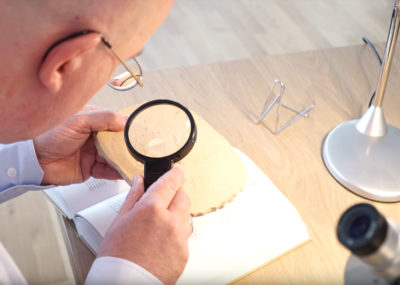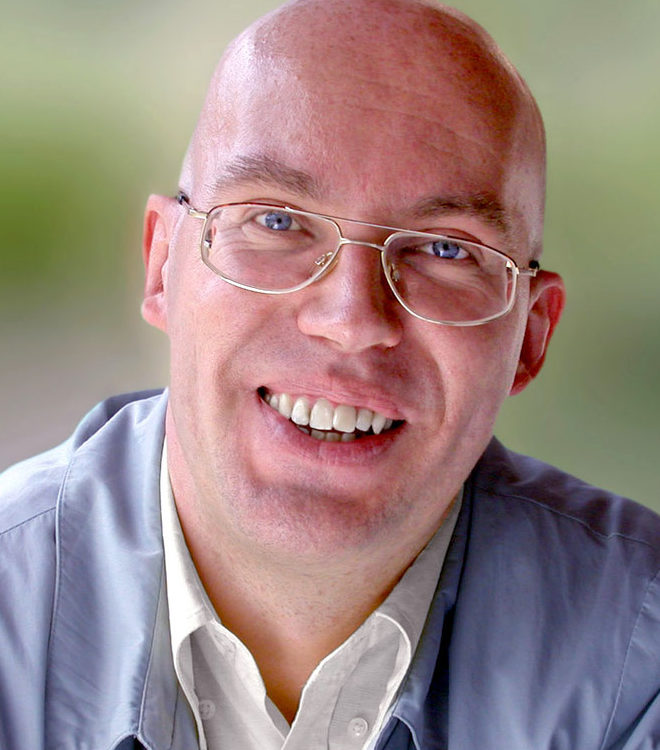Marginalized, Shown the Door

Günter Bechly is a distinguished scientist focusing on the fossil history of insects. He has authored or co-authored about 150 scientific publications, including a co-edited book published by Cambridge University Press and a popular science book on evolution. He has discovered and named more than 160 new species, and has 10 biological groups named in his honor. He has served on the editorial boards of two scientific journals, and has organized five large public exhibitions on Earth history and evolution. He has been interviewed widely in German media and served as a science advisor for two natural history documentaries on the BBC.
At the bicentennial of Darwin’s birth, Bechly directed the Darwin Day exhibit at the prestigious State Museum of Natural History in Stuttgart, Germany. Attracting over 100,000 visitors, the event was one of (if not the) largest celebrations in Germany of Darwin’s birth year.
Bechly created an exhibit to demonstrate refutation of intelligent design. It featured both Darwin’s Origin of Species and some books by intelligent design theorists. But Bechly happened to read some of the pro-intelligent design books. He noted, “[W]hat I recognized to my surprise is that the arguments I found in those books were totally different from what I heard either from colleagues, or when you watch YouTube videos where the discussion is around intelligent design versus neo-Darwinian evolution. And I had the impression that on one side those people are mistreated, their position is misrepresented, and on the other hand that these arguments are not really receiving an appropriate response and they have merit.”
Bechly made contact with leaders in the intelligent design community, and he embarked on a multi-year intellectual journey that resulted in him changing his previous views and publicly declaring his support for intelligent design on his website in 2015. After coming out in favor of intelligent design, Bechly faced intense persecution at his museum, where he served as one of the curators. Despite his exemplary 17-year career at the museum, colleagues now viewed him as a “creationist.” Soon, he found he had lost access to fossils that were critical to his research. A support position he needed was to go unfilled. A major museum exhibition he had designed was handed over to a colleague who had no expertise in the subject of the exhibit. The head of the entomology department asked Bechly resign as the ombudsman for a research funding group – at the request of the group’s director.
Bechly notes that the museum told him that “as a big threat to the credibility and reputation of the museum,” he was “no longer welcome, and that it would be appreciated if I would decide to quit.” They created a hostile work environment, forcing Bechly to resign after serving for 17 years.
In 2017, Wikipedia deleted its long-standing English-language page about Bechly, provoking an international controversy in the process. Defenders of Bechly accused Wikipedia of engaging in censorship.
Now, Bechly is a Senior Fellow of Discovery Institute and a senior scientist with Biologic Institute, continuing his study of paleontology through independent funding.
